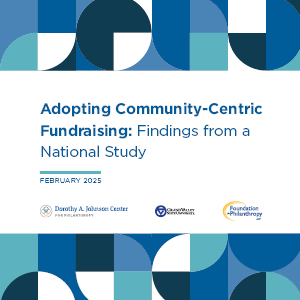Michigan Coronavirus Task Force on Racial Disparities and Disaggregated Data
Michigan’s task force improved data collection on racial disparities in COVID-19 to address systemic healthcare inequities.


















Michigan’s task force improved data collection on racial disparities in COVID-19 to address systemic healthcare inequities.
The Office of Management and Budget recently updated the way federal race and ethnicity data is collected — a great step forward for visibility of communities nationwide, but prompting significant concern for problems ahead.
Pandemic-driven delays in processing and release, as well as challenges in the data ecosystem itself are putting previous data accessibility gains in jeopardy.
Dr. Claudia Youakim calls for updates to our Federal data collection standards to include Middle Eastern and North African (MENA) racial and ethnic identities.
Chronic disinvestment and a lack of access to public green spaces have led to poorer health outcomes for children and adults in Black and Brown communities. It’s time to take action.
Groundwork’s Melanie Wong shares how her organization is using data from a new Johnson Center report to inform their work toward greater health equity and opportunity in Michigan communities.
Nonprofits are taking advantage of new partnerships, tools, and technologies like data philanthropy, predictive analytics, and machine learning to demonstrate impact.
Explore three ways to easily save and share information from Community Insight, the Johnson Center’s free online data tool.
Community Insight’s map layer feature allows you to visualize indicator data in a specific geographic area and easily compare data across locations.
This step-by-step guide explains how to use the Community Insight public dashboard to view indicators from multiple datasets on topics like education, health, unemployment, household income, and more.